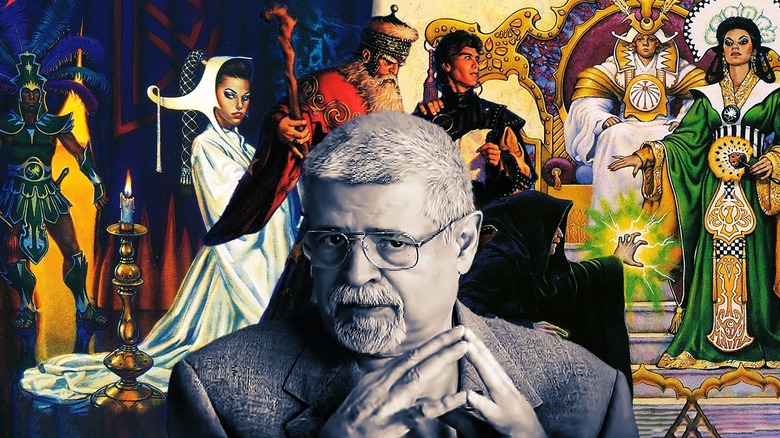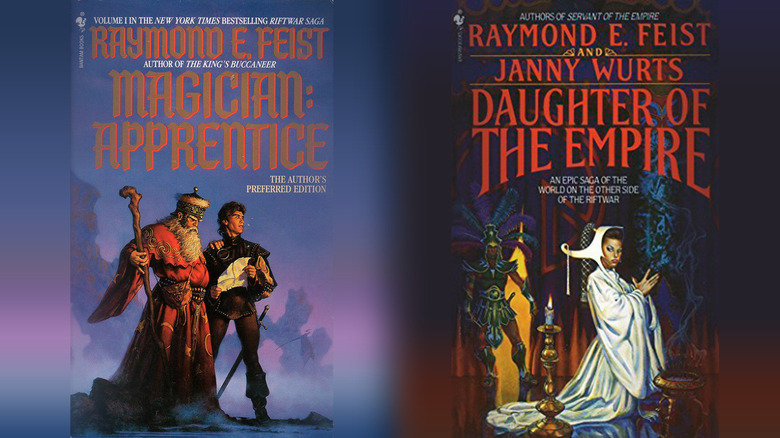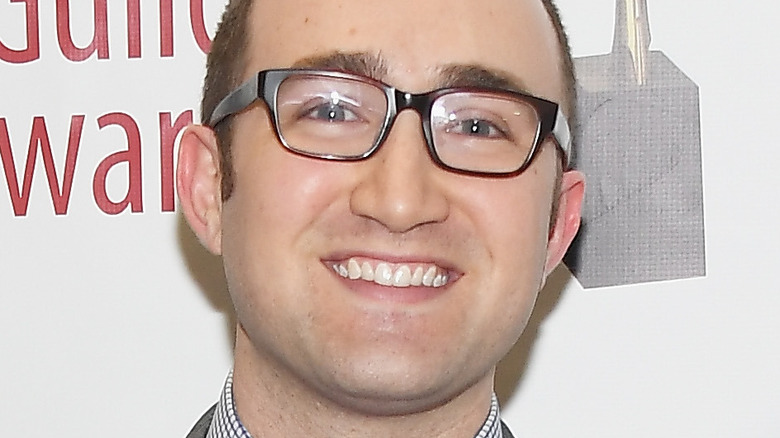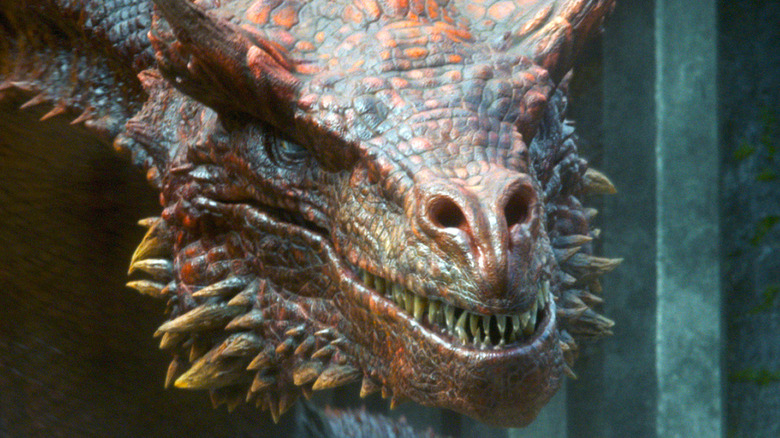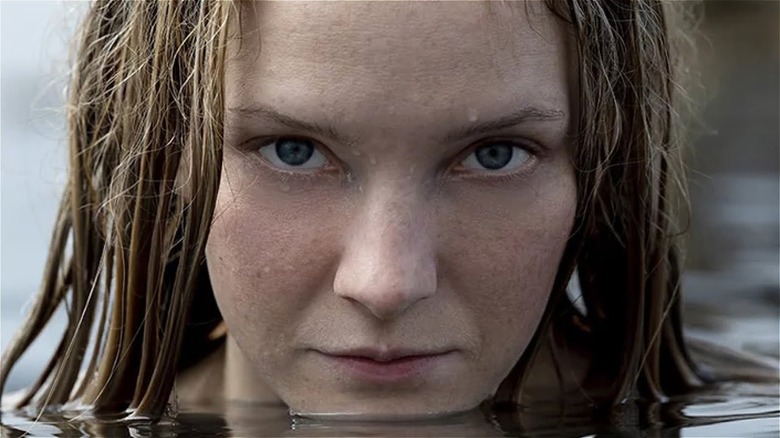Ray Feist's Riftwar Cycle Could Change The Face Of Fantasy TV (& It's Already Optioned)
Now that "Game of Thrones," "The Witcher," "The Wheel of Time," "House of the Dragon," and "The Lord of the Rings: The Rings of Power" have ushered in a golden era for fantasy television, it was only a matter of time until someone turned their attention to Raymond E. Feist's "Riftwar Cycle." That's good news for us, but an almighty nightmare-inducing task for the brave souls who have volunteered to bring the project to life.
According to Deadline, Six Studios has acquired the television rights to Feist's "Riftwar Saga" and "Empire Trilogy" (which Feist co-wrote with Janny Wurtz). Furthermore, Hannah Friedman, Jacob Pinion, and Nick Bernardone have been tasked with adapting them. That's a mammoth task if there ever was one, but focusing on the first two trilogies is a good idea for now. After all, the "Riftwar Cycle" is a monumental series that comprises 30 novels and a few short story collections. It's a lot, but that doesn't mean we can't dream about a full-scale television franchise.
So, what makes a "Riftwar Cycle" TV series such an exciting proposition? Well, in addition to being an adaptation of some of the best fantasy novels on the market, the series has the potential to showcase the best elements of genre television. And if the planned TV show does spawn a larger franchise, there's certainly no shortage of source material to mine from.
The Riftwar Cycle starts with two series
Before we start dreaming about where a "Riftwar Cycle" television empire could end up, let's focus on the projects that are in the works. The "Riftwar Saga" — "Magician," "Silverthorn," and "A Darkness at Sethanon" — is the trilogy that started it all. "Magician" centers around a character name Pug and an interdimensional war between the worlds of Midkemia and Kelewan. "Silverthorn" and "A Darkness at Sethanon," meanwhile, mainly follow a character named Prince Arutha as he encounters a dark power that threatens to destroy Midkemia, spearheaded by an evil warlord with an appetite for destruction (and no, it isn't Axl Rose).
The "Empire Trilogy" — "Daughter of the Empire," "Servant of the Empire," and "Mistress of the Empire" — is concurrent to the "Riftwar Saga," but the story takes place in Kelewan and follows Mara, a girl who inherits the reins to the Tsurani Empire after her father and brothers get killed. As her male family members found out the hard way, having the keys to this kingdom is no easy job, so Mara must fight and scheme her way through a cutthroat political system in order to get the job done.
Both of these series complement each other, yet they are quite different in terms of perspective and style. However, merging them could create some excellent television, and Hannah Friedman, Jacob Pinion, and Nick Bernardone are certainly talented enough to pull off magic that Pug himself would be proud of.
The Riftwar Cycle TV series creators should merge the trilogies
Adapting the "Riftwar Saga" and the "Empire Trilogy" together is a good idea, assuming that's the plan. As previously mentioned, both trilogies are concurrent, albeit set in different worlds and told from separate points of view. A TV series that condenses both trilogies and portrays the conflict between Midkemia and Kelewan from different perspectives is way more interesting than looking at it from one side.
Of course, Pug and Mara will likely be the central characters on the planned "Riftwar Cycle" TV series as they have the most interesting arcs. For example, Pug begins his life as an orphan and grows up to become a mighty wizard, while Mara starts out as a novice priestess and eventually becomes the most powerful person in her Empire. Who doesn't love an underdog story?
That being said, that description doesn't account for other important characters who receive strong arcs in the books. Most of the characters in Ray Feist's novels are given strong backstories, and the TV creators will have trouble figuring out which characters to prioritize. Furthermore, the events depicted in "Silverthorn" and "A Darkness at Sethanon" chronicle a different conflict entirely, and those storylines will require at least a couple of seasons to be told properly. But they come after the Midkemia and Kelewan conflict, and that's the war the TV series will undoubtedly focus on first.
Viewers can look forward to interdimensional war, dragons, and more
Are you a fan of the political scheming on "Game of Thrones?" Perhaps you prefer epic adventures in the vein of "The Rings of Power" and "The Wheel of Time?" However, if you're someone who'd like to see more political intrigue infused into an epic interdimensional fantastical adventure, the "Riftwar Cycle" TV series should be one of your most anticipated shows.
If the TV incarnation covers the main events from the trilogies that have been optioned, viewers have lots to look forward to. The conflict between Midkemia and Kelewan will make way for the events depicted in "Silverthorn" and "A Darkness at Sethanon," which details a war that boasts apocalyptic stakes and culminates with a battle involving dragons. Meanwhile, Mara's exploits will probably inspire more character-driven and political storylines that complement the sprawling adventurous elements. The threats that affect her are from within her own Empire, but her story is just as riveting as Pug's interdimensional travels and Prince Arutha's battles with dark forces.
In short, the "Riftwar Cycle" features a mix of everything that's great about fantasy storytelling. In Ray Feist's universe, character development is just as important as action and adventure. Political plotting is just as exciting as the clashing of swords. There are stakes and consequences, but it's also fun and escapist. If the TV series honors the multi-faceted element of the books — and does them justice — it will knock other fantasy shows out of the park.
The Riftwar Cycle won't face the same criticisms as The Rings of Power
Let's pretend that the "Riftwar Cycle" TV series actually goes ahead and becomes a huge success. It will only be a matter of time until network executives acquire the rights to the other stories with the intention of producing spin-offs, sequels, and whatnot. If "House of the Dragon," "The Witcher: Blood Origin" and "The Lord of the Rings: The Rings of Power" have told us anything, it's that fantasy IPs are gobbled up with franchise goals in mind. Fortunately, Ray Feist's literary universe is littered with individual series within the overarching "Riftwar Cycle" that can serve as the basis for TV shows for decades to come.
For example, the "Riftwar Cycle" TV show will undoubtedly feature a character called Jimmy the Hand. He's a thief with a heart of gold who becomes an ally to our heroes in the "Riftwar Saga." In the "Riftwar Legacy" novels, he's promoted to the role of noble squire and forced to contend with assassins, continental invaders, and mysterious magicians. There's a spin-off idea right there.
Of course, the same can be said about the other series in the "Riftwar Cycle." While they all take place in the same universe and feature crossover characters, they follow different protagonists through new conflicts each time, all of which are every bit as riveting as the books that have already been optioned. In theory, a television franchise could produce 10 separate spinoff series based on Feist's works alone. "The Rings of Power" has been accused of not having enough source material to warrant a series about Middle-Earth's Second Age. Feist's novels, on the other hand, arguably have too much source material to choose from — and that's a good problem to have.
